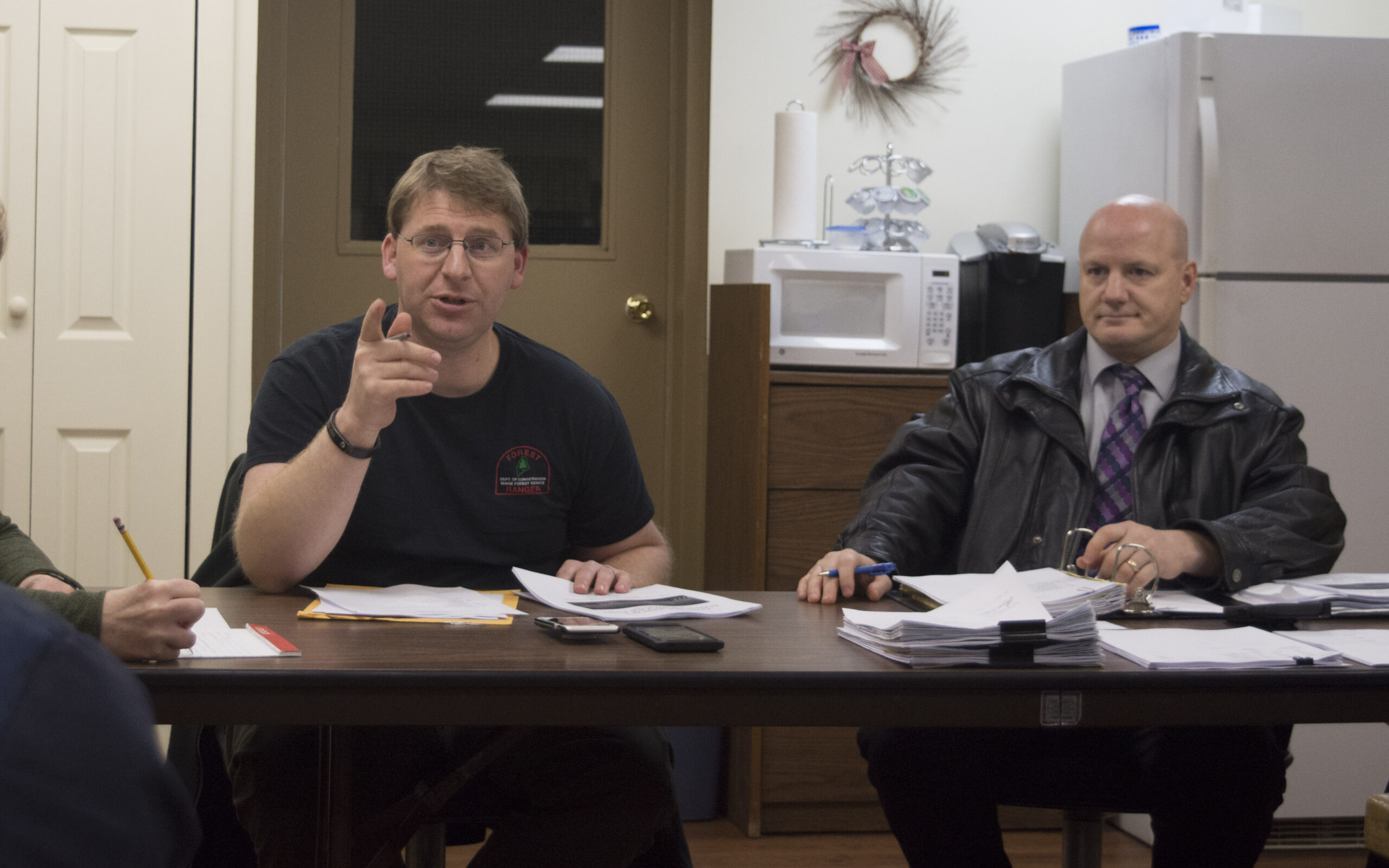
WOODLAND, Maine — Towns served by Caribou Fire and Ambulance are planning to discuss negotiating the city’s significant rate hike announced in late December that would increase taxes in several communities by at least 1 mill.
Caribou first informed surrounding towns that rates would increase from $11.50 per capita to $100 per capita in mid-December, giving them until Jan. 31 to decide whether to continue service. The deadline has since been changed to March 31 and officials from the affected towns hope to negotiate what they consider a more reasonable price before this date.
Selectman Will Barnum was appointed during a Feb. 18 Woodland Board of Selectmen’s meeting to represent Woodland in this group. Officials from Perham, Westlanland, New Sweden, Stockholm and unorganized townships will be part of the group.
Selectman Carl Grant said he would agree to Barnum participating in the group as long as the public is notified about the meetings beforehand and decisions discussed go back to each of the town’s officials for possible action.
Barnum also agreed, and said he and other town officials have suggested hiring an attorney to address their concerns about the legality of executive sessions in which Caribou City Council discussed the ambulance fees. If this occurs, Barnum said the matter would be brought back to the board to approve funding for legal costs.
Barnum said that several meetings open to the public will likely occur over the next few weeks, and that if any decisions need to be made for Woodland, they will be brought before the town’s board of selectmen.
He said the primary goal is to come together and formally request a meeting with the Caribou City Council.
“I have my suspicions as to where they’re going to tell us to go,” said Barnum. “I might not get paid enough to do this job, but I get paid too much not to do anything in this situation. We have to make some effort, not just roll over.”
One resident asked Carl Grant, who also works as Caribou’s finance director, why City Council requested such a high increase in December when Caribou Fire and Ambulance Chief Scott Susi only suggested a 2 1/2 percent increase in November.
Grant said that while he provided Caribou council with historical numbers pertaining to the department’s budget, he does not know what they used for a formula or how the new rate was calculated.
Another resident suggested getting together with these communities and conducting a feasibility study on creating a separate ambulance service instead of being “held hostage by Caribou.”
Barnum said that while a feasibility study is a good idea, the largest issue would be finding enough staff.
“It’s really hard to find people who are qualified,” said Barnum. “It’s not as easy as going to the hospital and taking a class.”
One resident asked if Presque Isle’s EMS might be an alternative to Caribou’s, but Barnum said Presque Isle is unable to provide service to Woodland because of the town’s distance and current staffing.
As of Wednesday, no official dates have been set for a meeting between the towns affected by Caribou’s EMS changes. Barnum said they would likely take place at the Aroostook Emergency Management Agency office in Caribou, with roughly eight or nine officials representing each of the surrounding towns.
In response to a question about why Caribou raised its rates, Barnum said the issue is complicated.
“We’ve been paying $11.50 per person, which I can guarantee is not enough,” he said.
He said that, based on Caribou’s figures, the average call falls about $263 short of being reimbursed. Multiply that amount by 71 — or the average number of calls coming from Woodland — and it results in $24,000, or about $10,000 more than the town paid last year.
“If we doubled our per capita from $11.50 to $23 per person, it would more than cover Woodland’s fair share of the gap,” said Barnum. “None of the math works out to $100 per person, which is what Caribou is suggesting.”
Caribou officials have said the increased rates will balance out what Caribou taxpayers were paying, as in the past they paid approximately $180 per capita while surrounding towns paid $11.50. In a letter to surrounding town officials sent in December, Caribou City Manager Dennis Marker said the rates would help sustain the fire and ambulance department, which costs roughly $2.7 million annually and is losing money on state and federal medical reimbursements.
Caribou City Councilors pointed out during a recent meeting that this issue is not only affecting local EMS services, such as Crown Ambulance — which recently discontinued operations due to shrinking reimbursements — but ambulance services across the country.
And while Barnum acknowledged that an increase in Woodland’s rate would be fair, he criticized Caribou’s approach of initially sending out a contract for “an exorbitant amount of money,” and giving town officials a little over one month to make a decision that affects the lives of their residents.
Barnum also disagreed with the city’s rate increase being used to pay for structural issues with the building, a new roof and a pellet boiler, as none of the surrounding towns have any say in the department.
“This is a subscription we are paying,” he said. “It’s like Netflix, only a little more important.”
And while Caribou has not shown interest in negotiating the new rates, Barnum said he did not believe a formal request has been sent to them in writing, adding that if Caribou denies the written request, it would give Woodland and other towns documentation that Caribou is “being unreasonable and that they don’t want to talk about this.”
“That’s little comfort to the taxpayer whose bill comes in at an extra $150, $200, $400 or $800, depending on what your valuation is, but at least we can say we tried,” Barnum said.







